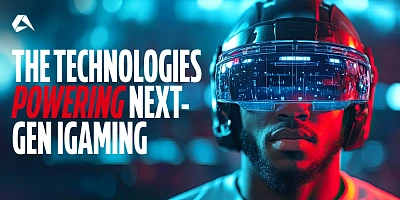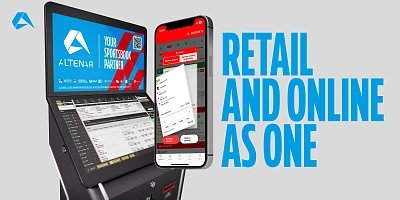The ability of iGaming operators to reach and engage with new demographics is integral to commercial success in today’s competitive online gambling market. In modern times, social casinos have evolved to offer more avenues for expansion and growth. But what are they, and how can they help iGaming marketing professionals achieve their aims in 2024?
What are Social Casinos and what’s the big deal?
Social casinos have emerged as a significant sector within the iGaming industry, capturing the attention of both gamers and investors alike. Known for their ability to offer free-to-play games while circumventing standard gambling regulations, these platforms mimic real-money casinos in style and function without the associated financial risks for players.
Recent data reveals an impressive growth trajectory. The social casino market is projected to reach around £7 billion by 2026, a testament to its growing appeal and market penetration. Staying updated on trends in social gaming will enable operators to maximise their reach and impact in the increasingly competitive digital gaming arena.
Understanding the reasons behind this emerging trend is advantageous. Social casinos allow operators to engage with broader, global audiences and serve as a strategic tool to build brand loyalty. Significantly, they provide operators with avenues to cross-promote real-money gambling offers. It is also worth noting that integrating advanced technologies and creative content strategies has set new user engagement and retention standards, making social casinos an indispensable part of any iGaming business strategy.
The Rise of Social Casinos
Initially conceived as simple, free-to-play platforms, social casinos have evolved into sophisticated gaming environments. These platforms offer a wide variety of experiences that closely mimic those found in real-money casinos in terms of both game quality and user engagement. Players can expect advanced graphics and gameplay mechanics in addition to comprehensive game libraries to meet the needs of a diverse user base.
Furthermore, integrating social features like leaderboards and shared achievements elevates the player experience and promotes a community atmosphere that encourages player engagement and retention. In a nutshell, this shift towards more engaging and immersive digital entertainment positions social casinos at the centre stage of the iGaming ecosystem.
Standout Features
Social casinos offer various gaming options, mirroring those found in real-money casinos but tailored for a free-to-play format. Players typically enjoy a wide range of slots, table games, and speciality options. Live dealer games are also prominent, bringing real-time action and an interactive experience, enhancing the social aspect of gaming. In addition, these platforms frequently integrate social media features that allow players to connect with friends, share achievements, and even compete in tournaments.
Key features that distinguish a social casino from real-money counterparts include:
Free-to-Play Model: No real money is required to play.
Virtual Currency: In-game currency is used instead of real money.
Social Integration: Players can connect with friends via social media.
No Age Restrictions: Wider access than digital casino entertainment.
In-App Purchases: Optional purchases to enhance gameplay.
Customisable Avatars: Personalisation of player representations.
Community Features: Chat rooms, forums, and community events.
Entertainment Focus: Designed primarily for fun, not profit.
Casual Game Elements: Additional elements from popular casual games.
Revenue Models and Benefits
Social casinos use alternative revenue models to sustain operations while avoiding the complexities of real-money gambling regulations. Such platforms generate income primarily through in-game purchases, where players buy virtual coins or tokens to enhance gameplay or access premium features. This micro-transactional model is particularly prevalent within the online gaming industry for free games.
Advertising also plays a big part, with operators incorporating branded content and promotional materials to expand reach to a broader audience. Significantly, social casinos can foster brand loyalty. In a risk-free environment, players enjoy longer playing sessions and visit more frequently.
When done correctly, iGaming operators have the opportunity to nurture and seamlessly transition a dedicated user base to real-money platforms when the time is right and regulations permit. Moreover, expanding market reach in this way is commonly achievable without legal constraints.
Marketing Strategies to Expand Reach
Platform owners can adopt several tried-and-tested strategies to expand reach and user engagement. Among the most effective ways to attract new players are content marketing campaigns relating to gaming tips, techniques and news. Targeted ads on social media platforms based on interests and online behaviour can also be highly productive, as can personalised email campaigns and friend referral programs.
Once on board, offering daily login bonuses is well-known for its ability to increase user interaction and visitation frequency. Exclusive events and tournaments, perhaps with bundled promotions through cross-platform collaborations, can be another angle worth exploring to boost engagement. Beyond these standard approaches, adding gamification elements, such as achievement badges and leaderboards, further stimulates player interest by tapping into their competitive spirit.
When transitioning social casino players to real-money platforms, operators achieve higher conversion rates by offering a gentle introduction, like trials of real-money games with non-cash rewards. Soft transitions like this ease players into real-money gaming without the immediate risk, increasing their comfort and likelihood of conversion.
Legal and Ethical Considerations
Social casinos operate within an entirely different legal framework compared to real-money gambling sites, reducing regulatory burdens associated with gambling licences and compliance. Yet, vigilant management of in-game monetisation and marketing practices to align with consumer protection laws remains necessary.
Moreover, iGaming operators should represent gambling in the right way by ensuring anti-addiction measures are in place. While the entry barriers are lower, maintaining ethical standards is integral for brand reputation and sustaining operations.
Value to iGaming Operators
Social casinos are poised to reshape the online gambling landscape in 2024 and beyond. For iGaming operators, these platforms serve as an opportunity to cultivate new customer relationships in environments where real-money gaming may not be accessible, such as within the various social media platforms.
This exposure provides marketing professionals avenues to enhance brand affinity and recognition, which is ideal for attracting first-time players. Furthermore, the social and engaging nature of these platforms invariably fosters deep player loyalty, which is a big win for long-term customer acquisition and retention efforts. Integrating social features serves to amplify this effect, turning loyal social players into brand advocates.
Free Up More Resources for Marketing
Altenar’s white-label solutions significantly reduce the time and cost of setting up your iGaming platform, leaving operators free to focus on the mission-critical task of customer acquisition and retention.
Disclaimer
This information is not intended to be legal advice and is solely extracted from open sources. It should not be relied upon as a substitute for professional legal advice, and Altenar does not accept any liability for its use.













